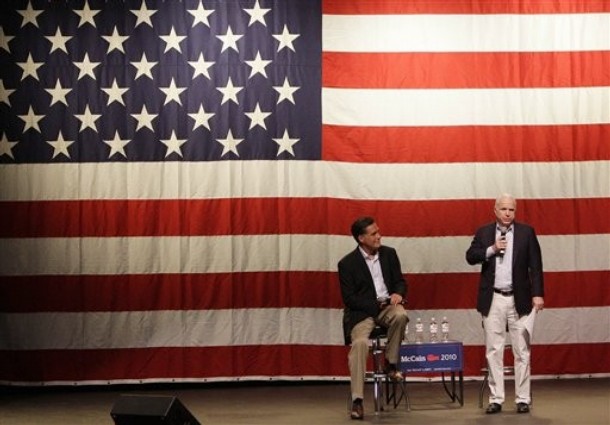
Jacob Heilbrunn's article in Foreign Policy on the decline and fall of the sensible, internationalist Republican old guard typified by Brent Scowcroft and George H.W. Bush has elicited some criticism from former Republican policymakers at the Shadow Government Blog (see here, here and here). The Shadow Government contributors argue that, contra Heilbrunn, there is no stifling Republican orthodoxy on foreign policy and that the internationalist mindset Heilbrunn mourns is still alive and well.
These are all valid and in some cases persuasive criticisms. I think Heilbrunn's piece sometimes conflates the un-nuanced views of popular conservatives (like Bill Kristol) with the conservatives and Republicans laboring away in think tanks who may not be as visible to the public but who are ultimately more responsible for shaping the direction that foreign policy would take under a Republican administration (in theory, at least). Read Shadow Government faithfully (as I do) and you will see that opinion is not necessarily monolithic on any subject.
But something's missing from this push-back. Heilbrunn's piece pivoted off of Mitt Romney's op-ed urging the Senate not to ratify the New START arms control treaty (calling it Obama's "worst foreign policy mistake"), despite the fact that these old guard GOP establishment types have endorsed it.
So it would be interesting to know where the once and likely future Republican policymakers contributing to Shadow Government feel about the specific question that kicked off this debate in the first place: should the Senate ratify the New START treaty? I know there's been some skepticism voiced in the past as to the merits of the treaty, but I don't recall anyone yet offering what their up or down vote would be. So, is Mitt Romney's take on New START where the rest of the current Republican foreign policy making establishment is?
(AP Photo)



